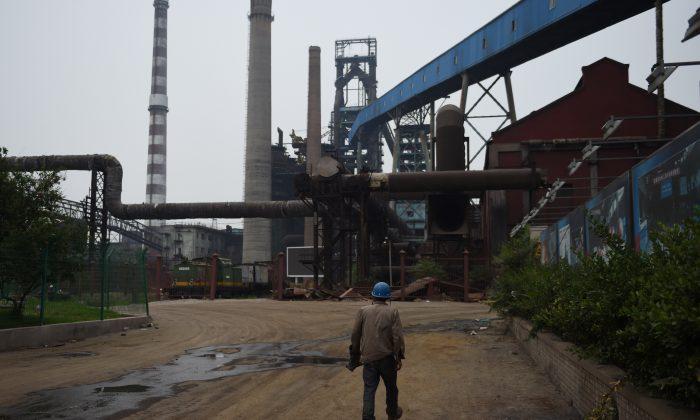The following is an abridged translation of a recent lecture given by Chinese economics professor Xu Xiaonian.
With China’s economic slowdown, Chinese leaders have come up with a new slogan, the “New Norm.” People have different takes on the meaning of this “new norm.” My understanding is this: first, the government no longer sets up a target of high economic growth; second, the government no longer uses expansionary fiscal and monetary policies to maintain certain growth targets; third, (dividends) growth is realized through reform.
I think the above three points are correct. Problems arise from the resurgence of old thinking in the “new norm” when economic figures continue to remain lower than we expect. The old thinking focused on banks relaxing lending and on government to increase spending on both domestic and foreign investment, etc. The old practices of the past dozen years did not solve the problems of the past and neither can they solve the problems of the future.
Stock Market Elation
If printing money cannot maintain growth, will issuing stocks be able to guarantee growth? We Chinese are now caught in a state of elation. There is no use to talk to anyone, as everyone is thinking about how much stocks have gone up each day. It is like being at a happy feast. The noise of the feast covers up the fundamental issue. Perhaps after the bubble has burst, we can talk about innovation. Right now, no one is in the mood to talk about innovation.
Will issuing stocks guarantee growth? This is the fundamental question.
Will the money invested in the stock market go into the enterprises? Does a booming stock market lower the cost of loans? No one is asking these questions and neither does anyone think about them. We will have to wait until the crash, and then we will talk about transformation of the country and of business. But, regretfully, it will be too late for many companies.
Equity Capital Cost
I do not object to people playing the stock market, but at the same time we need to think about how to restructure business. It is said that a stock market boom will reduce financing costs. What have we learned from central Europe? We all know that the cost of equity capital was far higher than the cost of debt capital.
Let me use one absurd statement as an example. Some say that equity financing reduces capital costs. Since many companies cannot obtain bank loans, or can only obtain very high interest loans, they get into the stock market. We all know the basic principle of corporate finance is that equity capital cost is significantly higher than the cost of debt capital. So, how can the stock market reduce financing costs?

Stock market capital costs are much higher than bank capital costs. But many companies are under the impression that the cost of “attracting capital” is lower in the stock market than from bank loans, because our investors rush into the stock market with no understanding of investment. In the U.S., the cost of financing from the stock market is 7 to 8 percent higher than debt capital. That means you can get loans from the bank for 5 to 6 percent interest, but stock market investors want 12 to 13 percent returns, as investors assume higher risks. This is common sense. Now we are in violation of such basic common sense.
Creating Wealth
Some people say to me: “Professor, you study western economics. Chinese economics and western economics are not the same.” When we talk about science, do we divide science into East and West? If we were to follow such a path, the concept of the cost of capital would be completely turned upside down. You think you can get money from investors for zero return. Who will bear the stock market costs? Investors, of course. Companies have obtained money. When stocks fall, investors suffer heavy losses. Those who participate in creating the bubble may not think about that. But as an economist, I have to consider how we will end up in the future.
Wealth is not generated in this way. In the past 200 years, wealth was not created by stock market bubbles or central banks issuing money. How is wealth created? That is a question each individual, each enterprise, and the government should ask themselves; it is the basic question in economics.
Xu Xiaonian is a Chinese professor of economics and finance at China-Europe International Business School in Shanghai. CEIBS was founded jointly by the Chinese government and the EU as a non-profit institute of higher education for teaching international management skills.


Friends Read Free